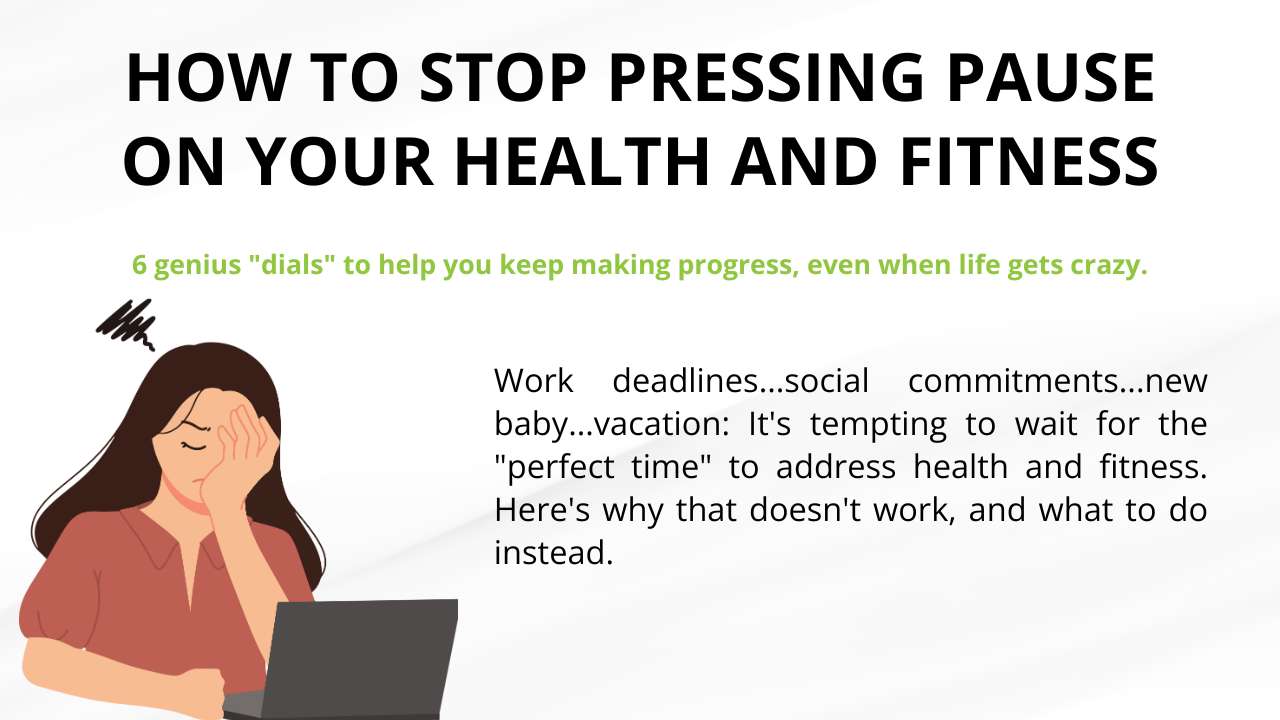The benefits of probiotics: When is a supplement a good idea?
There’s no probiotic supplement that works like a multi-cooker—solving five different problems all at once.
Instead, probiotics work more like a bread maker with a persnickety on-off switch. They only do one thing, and they only do that one thing… sometimes.
Probiotic supplements are both strain-specific and population-specific. So there’s no need to pop them the way you would a multivitamin.
You have to be taking the right strain for the right job, and there has to be some evidence that the strain can actually do that job. Even then, there’s no guarantee a probiotic will help solve the problem.
So a crucial first step in deciding which probiotic to take is to ask yourself:
Why do I want to take a probiotic?
Because based on what we currently know, probiotics may help in just a few specific situations.
Taking a probiotic may be helpful if:
You’re taking antibiotics.
Antibiotics kill off some of your gut’s microbes, which can cause a form of dysbiosis. (Remember, dysbiosis is when you don’t have enough diversity in your gut.)
This type of imbalance provides opportunities for pathogenic bacteria (the nasties that make you sick) to multiply and take over. That’s why some people get diarrhea while taking antibiotics.
One example: Clostridium difficile (often called C. Diff) normally hangs out in your gut. But it doesn’t cause problems, because the rest of the microbes in your gut keep it in check. Except, when you take antibiotics, C. Diff might get the opportunity to thrive, which can make you really sick.
So if you have to take antibiotics, taking probiotics alongside them may help reduce the risk of antibiotic-associated diarrhea. Lactobacillus rhamnosus GG and Saccharomyces boulardii seem to work best.
But you may want to wait and see if you actually get diarrhea before starting a probiotic. Why? Starting a probiotic too soon can backfire when it comes to getting your gut back to normal.
One study dug deeper into this by looking at a healthy group of people who were taking antibiotics.5
Some participants took Lactobacillus rhamnosus GG, some took the antibiotics only, and some got a transplant of their own pre-antibiotic poop after finishing their antibiotics (also known as an autologous fecal transplant).
The people who got back to their baseline fastest? The ones who got the fecal transplant, followed by the ones who took the antibiotic alone.
In last place: the group that took a probiotic.
The researchers theorized that the probiotic overpowered the participants’ native microbes, making it take longer to recover.
The takeaway? Since getting an autologous fecal transplant isn’t an option (they’re not FDA-approved for this purpose and, well, they’re a little inconvenient), the next best things are:
- Do nothing, and only use a probiotic if you get antibiotic-associated diarrhea
- Take Saccharomyces boulardii along with your antibiotic, which has been shown to help, but doesn’t seem to have the same overpowering effect as Lactobacilli strains
You have infectious diarrhea.
Got a stomach bug that’s causing diarrhea or traveler’s diarrhea? Taking Lactobacillus rhamnosus GG or Saccharomyces boulardii might help.
There are differences between what works best depending on the cause of diarrhea, as well. For instance, Lactobacillus rhamnosus GG seems to work better for diarrhea associated with C. Diff infections than it does for general infectious diarrhea.If you’re not sure which to try, consult your doctor or pharmacist for their advice.
You have irritable bowel syndrome (IBS).
Bifidobacterium and Lactobacillus probiotics appear effective for reducing symptom severity in people with IBS.
Caveat: Because some of the research uses quality of life scores and most of the strains seem to offer the same effect, there may be a placebo effect at play.
Still, if you have IBS, it may be worth it to give probiotics a try. Some research suggests taking a single strain on a short-term basis (8 weeks) is most helpful. Other research notes that a combination of Bifido and Lactobacillus works best, particularly if constipation is a problem.
So if you’re thinking of taking a probiotic for IBS, consider checking in with your gastroenterologist or a registered dietitian experienced with GI disorders about which strains to try.
You have ulcerative colitis.
Ulcerative colitis, a form of irritable bowel disease, may respond well to certain probiotic strains.
In particular, VSL#3, which is a combination of several different strains, may induce remission and prevent flares. Unfortunately, researchers haven’t seen the same consistency in treating people with Crohn’s disease.
You’re being treated for an H. pylori infection.
Heliobacter pylori is a type of bacteria that can live in your digestive tract and cause ulcers. Certain strains (Lactobacillus reuteri, Lactobacillus rhamnosus, and Saccharomyces boulardii) may have a synergistic effect with conventional treatment. And if you’re being treated with antibiotics, it could reduce any associated diarrhea.
You want to reduce your cholesterol/improve heart health.
File this one under: Probiotics might help, but certainly shouldn’t be the primary thing you do to improve your cardiometabolic health.
Some evidence indicates that certain strains can improve lipid profiles, meaning we see reductions and either total or LDL cholesterol, as well as improved insulin sensitivity.In the case of cholesterol, the findings were specific to fermented dairy (think: yogurt) rather than a supplement.
Probiotics are unlikely to help if:
You’re dealing with depression, anxiety, or another mental health concern.
Yes, the gut-brain axis is a thing. But we still have a lot to learn about it.
Much of the mainstream discussion around using probiotics for mental health revolves around the idea that if your gut produces more serotonin (sometimes called the “happy hormone”), you’ll have better mental health.
While it’s true that 95 percent of your body’s serotonin is produced outside the brain (including in the gut), this isn’t the exact same serotonin that makes you feel happy.
Serotonin produced in the gut doesn’t cross the blood-brain barrier, meaning it won’t impact your mood.
The science simply doesn’t support the idea that having more serotonin in your gut means you’ll have better mental health. And overall, the evidence for using probiotics to help treat the following mental health issues is weak:
- Depression: It looks like probiotics might have an antidepressant effect, but there’s not enough evidence to say that definitively.
- Anxiety: Preclinical studies in rodents show a benefit, but, so far, these benefits haven’t been observed in humans.
- Mood: In general, it seems probiotics may have an effect on mood. But researchers are careful to note that at the moment, we don’t know enough to make recommendations.
Importantly…
Probiotics should never be used in place of traditional mental health treatments. (Seriously.)
And even if you’re considering probiotics as something to try alongside therapy or medication, it’s probably not worth it.
You want to lose weight.
It’d be so nice if probiotics could help us lose fat. Unfortunately, there’s no compelling evidence that probiotics can help with fat loss. Some studies have shown a reduction in waist circumference or BMI, but the effects are too inconsistent to draw conclusions.
You have a rash or acne.
As of now, probiotics are not recommended for eczema, atopic dermatitis, acne or any other skin complaint.
You have GERD.
For those experiencing discomfort related to gastroesophageal reflux disease, probiotics may seem like a nice alternative to conventional medications. Unfortunately, while some early study results have seemed promising, they’ve been inconsistent. So there’s not enough evidence to show that probiotics can help in this situation.
You have occasional gas or other digestive issues.
If you’re wondering if probiotics can help with intermittent gas or stomach upset, the answer is no. Research shows probiotics don’t help with indigestion that has no specific, diagnosable cause.
You’re concerned you have a leaky gut.
Though intestinal permeability, aka “leaky gut,” has been associated with various diseases and certain medications, it’s not something that can be diagnosed as a health problem.
When a person does have intestinal permeability, they won’t have any outward symptoms of that issue specifically—though it’s possible they may have other digestive complaints.
And regardless of whether you believe leaky gut is a “thing,” there’s no evidence probiotic supplements help repair the gut lining in people with intestinal permeability.
You have a yeast infection or recurring UTIs.
People often look for natural alternatives to treating these issues, but probiotics are unfortunately not proven to help with yeast infections or prevent recurring urinary tract infections.
You want to be the healthiest person on your block.
You’re better off making lifestyle changes to support your overall health than taking a probiotic.
You want to “boost” your immune system.
We know that probiotics can play a role in enhancing immunity in certain specific situations.
For example, when you take a probiotic to help with infectious diarrhea, that’s a function of immunity. And one study showed probiotics might reduce the severity of upper respiratory tract infections in athletes.
That said, for overall immune health—something a lot of people are interested in now given the pandemic—there are quite a few other changes you can make that will have a greater impact.
How to support a healthy gut without supplements
- Are you getting enough fiber from a variety of sources?
- Are you getting enough physical activity on a regular basis?
These are the two biggest factors that seem to determine microbial diversity.
So if you’re interested in taking probiotics for general health or for one of the issues listed in the “probiotics are not likely to help” category, you’ll want to be sure you’re implementing these two lifestyle changes first.
Not only are they often less expensive than probiotics, but they’re more likely to improve your health overall. Also, if you’re taking probiotics for purpose there’s good evidence for, these practices will be supportive.
Reference:





